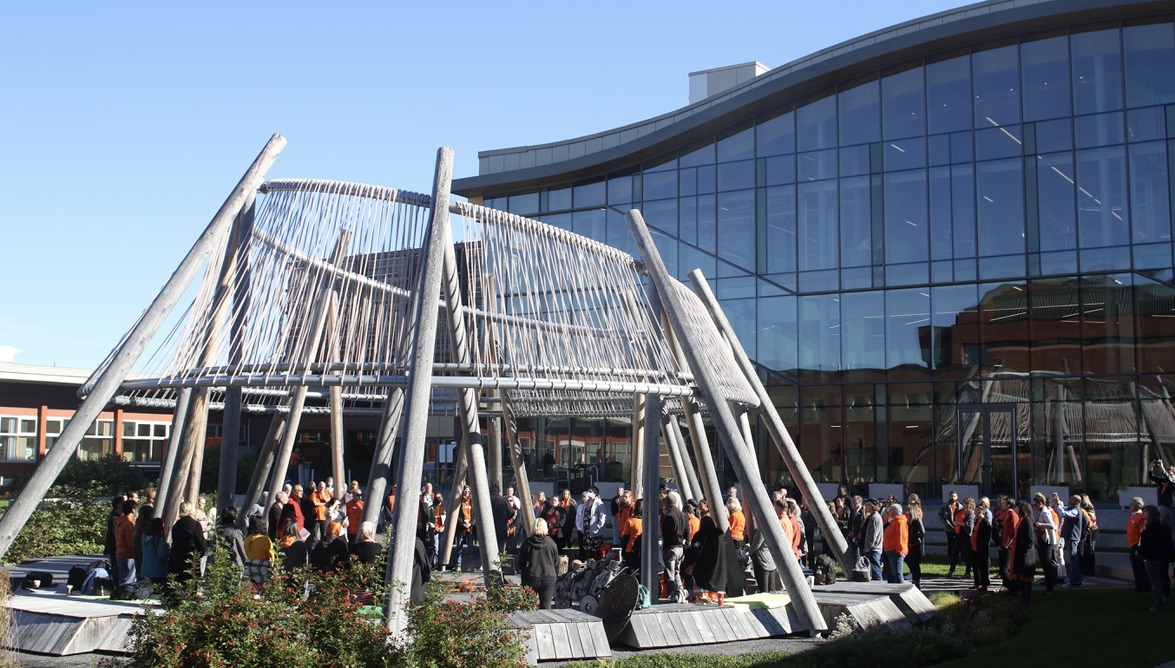College unveils sculpture on National Day for Truth and Reconciliation

An Indigenous storyteller led an emotional ceremony at Algonquin College on Sept. 30 in honour of National Truth and Reconciliation Day. The college also unveiled a commemorative sculpture.
On a day intended to honour the families and children who are affected by the residential school system, guest speakers, faculty members, families and young children, most of whom were wearing orange shirts or an orange shirt pin, met in the Ishkodewan Courtyard and took comfort under the Gathering Structure.
The event began just after 10 a.m. as people shared hugs and settled into their seats.
Setting the tone with honesty and personal impact stories, community knowledge keeper and Indigenous rights advisor Michael Desautels led a storytime.
Beginning his speech by emphasizing the beauty of being Indigenous and how he became knowledgeable about history, Desautels shared parts of his life, the lives of his family and community members, and the significance the day holds for them.
Urging his listeners to reflect on their families and who they love, Desautels asked them to imagine having that same loved one being taken away without any say. While he himself did not experience the first-person effects of residential schools, he said he is familiar with the pain it caused.
Desautels talked openly and truthfully what being Indigenous means for him.
Discussing what community members can do to help reconciliation on Sept. 30 and on other days, he said, “What we ask of our settler allies is to not let the government get away with it anymore.”
“Lend your voice to what is happening. Lend your voice to the fact that there are still 53 communities in Canada that do not have access to clean drinking water and lend your voice to the fact that the students who attend provincially funded schools will receive $3,000 per student per year more than Indigenous kids,” he added.
It was a sunny day with a breeze. Children, as young as three or four years old, were bundled warmly and had smiles on their faces. They were seated in a circle with blankets close to the fire. The adults, participants, and contributors gathered closely behind.
Near the end of the event, participants were welcomed to the sculpture unveiling.
To commemorate those who suffered from or never returned home from residential schools, Barry Rager, a local artist, created a monument that helped tie the morning together.
The sculpture is made of metal and depicts flowers surrounding numerous pairs of shoes from young children. The front of the sculpture reads, “Remembering the Children.”
Thanking everyone who showed up, Algonquin College president Claude Brulé emphasized that Sept. 30 is a day for change.
“We value the contributions that First Nations, Inuit, Métis and other Indigenous Peoples have made, both in shaping and strengthening this community, province and country,” Brulé said.








